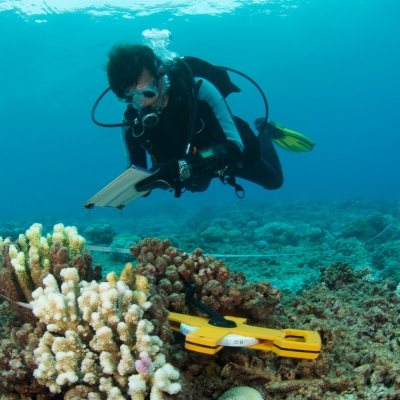
Marine conservation involves a study of marine organisms and evaluating threats posed to them and taking action to protect and rehabilitate them. Working as a marine conservationist can be highly satisfying as you can make a meaningful contribution to the planet, live in exotic places and lead on unconventional work life. Majority of the conservation efforts, today, focus on coral reefs, whales, dolphins, and sea turtles.
What are the prospects?
Although India has a vast coastline, marine conservation is a relatively new field in India. The rising threats to our oceans and the boom in marine sports such as scuba diving and sailing has sparked interest in exploring the ocean and preserving it. Conservation firms and government bodies are in need of experts who can research and advise them on protecting marine life. There are several opportunities for entrepreneurs to come up with their own organizations and initiatives. India holds more potential compared to other countries, which are already saturated with marine biologists.
Required skills
- Interest in marine conservation
- Awareness about environmental issues and in-depth knowledge of climate change
- Knowledge of Chemistry, Physics and Mathematics
- Numerical and statistics skills
- Practical fieldwork skills
- Research-oriented mindset
- Patience and good observation skills
- Excellent teamwork and personal communication abilities
- Ability to work outdoors in all weathers – perhaps at sea
Where to study
Many Indian universities offer a Master of Science (M.Sc.) in Marine Biology, but only Science undergraduate can pursue this postgraduation. Foreign universities offer undergraduate and Master’s courses in both Marine Biology and Conservation.
India
- Department of Ocean Studies and Marine Biology, Pondicherry University, Port Blair, Andaman and Nicobar campus: M.Sc. Marine Biology
- Cochin University of Science and Technology Kerala: M.Sc. in Oceanography
- Veer Narmad South Gujarat University, Surat: M.Sc. (Aquatic Biology)
Abroad
- University of Tasmania in Australia: Bachelor of Marine and Antarctic science
- Scripts Institution of Oceanography, University of San Diego, the U.S.: Master of Advanced Studies Program in Marine Biodiversity and Conservation.
- Florida Institute of Technology, the U.S.: Bachelors in Science (B.S.) in Marine Conservation
Start volunteering!
Solid practical experience is key. Being involved with different projects, working on diverse hypotheses and learning about different species and processes also help keep an open mind while gaining experience beyond your selected subject. Volunteer opportunities are offered everywhere today and are easily found, thanks to the Internet. You can volunteer with Wildlife Rescue and Rehabilitation, Bengaluru, WWF, Reefwatch and other such organizations.
Picture Credit : Google
